IMAV 2017, the 2nd International Meeting on Arboviruses and their Vectors, aims to bring together experts in the field and appeals to scientists involved in arbovirus research and beyond, as key questions in arbovirus biology also apply to other pathogens, including tick-borne bacteria or parasites.
The IMAV 2017 meeting aimed to provide a platform to showcase advancements in the field by world-leading experts; give researchers in the field the opportunity to present their findings to an international audience; give scientists at all levels, from students to experts and leaders, an opportunity to get a broad, up-to-date overview of important developments and questions in the field; and allow extensive networking opportunities at a Focused Meeting which is unique in its field.
Topics included:
Organising committee: Alain Kohl, Esther Schnettler, Anthony Wilson, Gorben Pijlman, Stefaine Becker, Andrew Davidson and Anna-Bella Failloux.
For any inquiries, please email [email protected]
Follow us on Twitter @MicrobioSoc
Updates on IMAV 2017 can be found using the hashtag: #IMAV17
Image: AMI Images/Science Photo Library.
The poster abstract book can be downloaded below.
Those who are presenting posters must ensure the work is presented as below. We cannot accommodate incorrectly formatted posters during the conference.
All posters can be displayed for the full duration of the meeting. There will be two poster sessions and we encourage presenting authors to stand alongside their work. Times are as follows:
Presenters of odd numbers to present on day 1: Thursday 7 September 17:30–19:00
Presenters of even numbers are to present on day 2: Friday 8 September 17:00–18:30
Please ensure you remove your poster before you leave the meeting on Friday 8 September. The Society and the venue are unable to return any posters left behind.
In order to ensure your presentation runs smoothly, you are asked to comply with the following:
Registration is now closed.
|
Early bird rate |
Full price rate Available until Wednesday 23 August |
|
| Full Member | £200 | £210 |
| Postgraduate and Undergraduate Student Member | £150 | £160 |
| Non-member | £300 | £310 |
Upon registration you should receive an automated confirmation email. Please contact [email protected] if after 24 hours this has not been received.
Approved by the Royal Society of Biology for purposes of CPD, this event may be counted as 57 CPD credits.
If you need a letter of invitation for a visa application, we will be happy to supply this after we have received full payment. To find out if you need a visa to visit the UK, please visit the UK visa and immigration website.
It is the policy of the Microbiology Society not to supply an invitation letter to any delegate without payment and we will not reply to any request from an unregistered delegate. When the delegate has paid, the Conference office will email back a confirmation/receipt letter and, upon request, a letter of invitation, which may be used to obtain the necessary visa.
Please note that all conference delegates are responsible for their own travel and visa arrangements; the Microbiology Society will not take any responsibility for travel or visa problems.
All registration fees must be paid in full BEFORE arrival at the conference. Any outstanding registration fees must be paid before admittance will be granted to the conference.
Refunds are not provided, however substitutions of attendees can be made at any time by contacting [email protected].
The conference will be held at the University of Glasgow Gilmorehill Campus:
Sir Charles Wilson Building
Gilmorehill Campus
University of Glasgow
1 University Avenue
Glasgow
G12 8NN
Please see the detailed map and directions on the University of Glasgow's website.
Glasgow Taxis offer for airport transfers
Discounted travel is available for delegates for journeys between Glasgow Airport and City Centre with Glasgow Taxis. Pre-book your taxi by phoning +44 (0)141 429 7070 using the following codes to get the discounted fare.
Code CM7 (Glasgow Airport to City Centre)
Code CM5 (City Centre to Glasgow Airport)
The set fare per journey is then £19, saving you approximately £3 on the standard fare.
Accommodation is not included in the registration rates for this meeting. Please see below for some local options.
Glasgow Marriott Hotel
Glasgow Pond Hotel
Premier Inn Glasgow City Centre (Charing Cross)
Premier Inn Glasgow Pacific Quay (Finneston)
You can download a map of nearby hotels below.
We are delighted to announce the following speakers* have confirmed to speak at IMAV 2017. Further information will be updated here before the build-up to the event so watch this space.
*Subject to change.

Luke is a leader in the emerging field of genetic pest management, focusing particularly on mosquitoes. At Oxitec Ltd, a spin-out company from Oxford University that he co-founded in 2002, he showed in a series of field trials that wild mosquito populations could be successfully suppressed by genetics-based methods. After 11 years at Oxitec he moved to The Pirbright Institute in Feb 2014. In September 2015 Intrexon Inc acquired Oxitec for $160m. Luke was selected as a Technology Pioneer of the World Economic Forum in 2008 and BBSRC Innovator of the Year 2014.
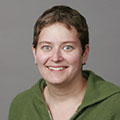
Sara is an Associate Professor in the Department of Microbiology, Scientific Director of the High-throughput Screening Core and Director of Chemogenomic Discovery at the University of Pennsylvania. She obtained her BS with Dr Peter Schultz synthesizing new biopolymers for drug scaffolds, and then her PhD with Dr David Baltimore studying early B cell development. Next, she completed her postdoctoral fellowship with Dr Norbert Perrimon where she developed high-throughput RNAi screening to study virus-host interactions. In her own lab, she has applied RNAi technology and other cell-based screening approaches to discover mechanisms by which diverse viral pathogens hijack cellular machinery while evading defenses. Her pioneering screening platform has opened up new avenues of discovery and continues to explore the interface of globally important emerging pathogens, with host cells, and had expanded her study to exploring the role of the microbiota in antiviral immunity.
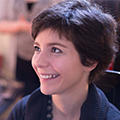
Leen works as a senior scientist in the Department of Microbiology and Immunology at the Rega Institute for Medical Research in Leuven, Belgium. She received her PhD in Pharmaceutical Sciences from the University of Leuven in Belgium in 2011, studying novel antiviral targets for the hepatitis C virus and strategies to prevent the development of antiviral drug resistance. Next, she worked as a postdoctoral fellow in the team of Professor Johan Neyts at the Rega Institute for Medical Research, where she characterised the mechanism of action of novel antiviral drugs against the chikungunya virus and picornaviruses. In 2016, she spent six months as a postdoctoral researcher in the team of Dr Anna-Bella Failloux at the Pasteur Institute in Paris, where she studied the transmission of drug-resistant arboviruses by mosquitoes. Her current work focuses on the study of antiviral strategies to treat or prevent chikungunya and Zika virus infections.

John is Professor of Virology in the Department of Microbiology and Immunology at the Peter Doherty Institute and Dean of the Faculty of Veterinary and Agricultural Sciences, both at the University of Melbourne (Australia). His previous roles have included Director of The Pirbright Institute (UK) and Chair of Virology in the College of Medicine & Veterinary Medicine, University of Edinburgh (UK). He has worked in the Department of Pathology, University of Cambridge (UK), Department of Microbiology, University of Pennsylvania (USA) and The Scripps Research Institute, La Jolla (USA). He is a Fellow of the Royal Society of Biology and a Fellow of the Royal College of Pathologists and is, or has been, a member of many UK and international editorial, advisory and governance boards, committees and working groups, most notably in the area of high consequence infectious diseases. His research focuses on the pathogenesis of arthropod-borne RNA viruses and in particular, cellular and immune responses to these viruses in vertebrate hosts and arthropod vectors. He has worked on alphaviruses, bunyaviruses, arenaviruses and flaviviruses. Current work focuses on the pathogenesis of Semliki Forest, Ross River and chikungunya viruses and how these viruses persist in arthropod and mammalian cells and tissues.
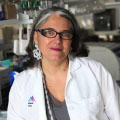
Ana received her PhD in Biomedical Sciences from the Mount Sinai Graduate School of the City University of New York (CUNY). She is currently a professor in the Department of Microbiology at Icahn School of Medicine at Mount Sinai (ISMMS). The areas of study in her laboratory are the modulation and control of innate immunity by human pathogens, such as dengue virus (DENV), influenza virus, and other RNA viruses of human interest. Her group has optimised and developed several assays to study the initiation/modulation of immune responses in human primary immune cells, such as dendritic cells (DCs) and macrophages, as well as primary lung epithelial cells and human tonsils. Her team identified specific host factors that determine the host tropism of DENV and how the DENV protease complex can target those host factors for degradation in order to establish infection.
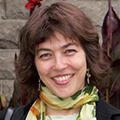
Eva is a Professor in the Division of Infectious Diseases and Vaccinology in the School of Public Health and Director of the Center for Global Public Health at the University of California, Berkeley. She has developed a multidisciplinary approach to study the virology, pathogenesis, immunology, epidemiology, clinical aspects, and control of dengue, Zika, and chikungunya, the most prevalent mosquito-borne viral diseases in humans, using in vitro approaches, animal models, and research involving human populations. This has been achieved through her research program at UC Berkeley and in Nicaragua, where she has worked extensively for almost 30 years. She is also the co-founder and President of the Sustainable Sciences Institute, which works to improve public health in developing countries by building local capacity for scientific research on priority infectious diseases. She has published over 210 peer-reviewed articles, as well as a book on her international scientific work.
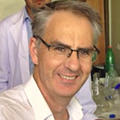
Roger is the scientific lead for arboviruses and viral haemorrhagic fevers at PHE’s institute at Porton Down. His group works on a wide range of zoonotic and arthropod borne pathogens using containment facilities up to CL4. He is head of the WHO Collaborating Centre for Virus Reference and Research and is involved in basic research and public health programmes.

Juha's research group focuses on how emerging zoonotic viruses infect their host cells. Many of these viruses are pathogens causing serious diseases. After his PhD in Helsinki in 2006, he received an EMBO Long Term Fellowship to join Max Planck Institute of Biochemistry (Munich, Germany) as a visiting postdoctoral research fellow and to work on bunyaviruses. Starting in January 2010, Juha was invited to establish his own group at the Division of Structural Biology, University of Oxford, supported by a five-year career development award from the Academy of Finland. In Oxford, he has continued the work started in Munich, focusing on structures and host–cell interactions of emerging viruses. In 2015, he was awarded an European Research Council’s consolidator grant that has allowed him to establish a research program in bio-imaging and structural virology of bunyaviruses, with a particular focus on Rift Valley fever virus and its membrane fusion mechanism.
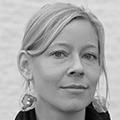
Sandra is a virologist and has recently moved to the Institute of Virology at the University hospital Charité in Berlin. She was previously heading a research group at the Institute of Virology at the University of Bonn Medical Centre in Bonn. Her research focuses on the ecology and evolution of arthropod-associated viruses. She is particularly interested in the genetic diversity of arthropod-associated viruses and in ecological mechanisms that influence the geographic spread and emergence of arboviruses. She and her team have characterized numerous novel viruses including the discovery of four novel RNA virus families.
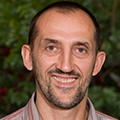
Alexander is Professor of Virology and the Deputy Director (Virology) of the Australian Institute of Infectious Diseases at the University of Queensland. He established his independent laboratory in 2001 and has been a recipient of prestigious Senior Research Fellowships from the National Health and Medical Research Council of Australia since 2004. He serves on the Executive Committee of the Australasian Virology Society and is a member of the Editorial Boards for Journal of Virology and Journal of General Virology. One of the main focuses of Alex’s research has been the development and application of advanced molecular virology techniques, in particularly, inventive approaches to generate infectious flavivrius cDNAs, chimeric and mutant viruses, and replicons, to address fundamental questions in flavivirus replication and pathogenesis and to develop effective vaccine candidates. Other research and translational interests include viral evasion of host innate immune response, viral and host non-coding RNAs, and replicon-based vaccine and cancer therapy vectors.

Félix is a structural biologist who graduated in theoretical physics in Argentina and later obtained his PhD in biochemistry at the South Paris University in France (in 1988). He then spent 7 years as postdoctoral fellow at Harvard University, until 1995, where he specialised in the structure of viruses. In 1995 he returned to France as Junior PI working at CNRS in Gif-sur-Yvette (Paris area), where in 1999 he became Director of the CNRS Laboratory of Structural and Molecular Virology. In 2004, he joined Institut Pasteur (downtown Paris) as Head of the Virology Department (which he directed until 2012), and in parallel he created the Structural Virology Unit, which he still directs today. His research focus has included the 3D structures of viral polymerases (like the hepatitis C virus RNA-dependent RNA polymerase) and the nucleoprotein template of replication for negative stranded RNA viruses such as the respiratory syncytial virus. But his main focus has been the study of viral envelope proteins, how they induce fusion, and how they are recognised by potently neutralising antibodies. His studies in this area have very important implications in “reverse vaccinology”, opening the way for epitope-focused vaccine design for viruses such as dengue and Zika. Félix has been an EMBO member since 2005 and a member of the French Academy of Sciences since 2010. Among the honours and awards he has obtained are the CNRS Médaille d’argent in 2004, the Beijerink Virology Prize of the Dutch Royal Academy in 2013, and the Pasteur-Weizmann-Servier award in 2015.
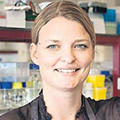
Jolanda received her PhD degree with honours in 2002. Her thesis is entitled: Receptor interaction and membrane fusion activity of alphaviruses. After her PhD research, she obtained several prestigious grants which enabled her to initiate her own line of research on flaviviruses. In 2010, she received the Heine Medin award for her contribution to European Virology. In 2011, she was appointed tenure track professor at the University Medical Center Groningen, The Netherlands. With the emergence of chikungunya virus she went back to the field of alphaviruses and currently her research group focuses on both alphaviruses and flaviviruses. The reseach line on virus–host interactions is coordinated by herself and the line of research on innate immunity is coordinated by Dr I.A. Rodenhuis-Zybert, a senior researcher within her group.
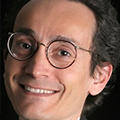
Tom is Chair of Neurological Science, Director of the Institute of Infection and Global Health, and Director of the National Institute for Health Research (NIHR) Health Protection Research Unit in Emerging and Zoonotic Infections, at the University of Liverpool. After qualifying in Medicine at Oxford, his research training included 3 years at the Oxford University Clinical Research Unit in Vietnam, and 2 at the University of Texas Medical Brain, Galveston, USA. He heads the University of Liverpool’s multi-disciplinary Brain Infections Group. With more than £17 million in research funding the group works to reduce the global burden of neurological disease caused by infections, with major programmes on Japanese encephalitis in Asia, and Zika and chikungunya in Latin America. Tom is an enthusiastic science communicator; his popular science book Roald Dahl’s Marvellous Medicine was published in 2016. He tweets @RunningMadProf.
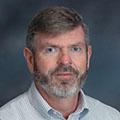
Scott is a virologist and vector biologist, Director of the Institute for Human Infections and Immunity, and Chair of the Microbiology and Immunology Department at the University of Texas Medical Branch. He studies arboviruses, their transmission by mosquitoes, and vaccine development. Scott’s research encompasses the ecology and epidemiology of transmission cycles, virus-mosquito interactions, pathogenesis, and emergence mechanisms of epidemic arbovirus strains including Venezuelan equine encephalitis, chikungunya and Zika.
Eligible delegates may apply for support to attend this meeting. Three different grants are available – please see below for full details. Please contact [email protected] with any queries.
Eligible Full Concessionary and Postgraduate Student Members of the Microbiology Society may apply for the Society Conference Grant. The closing date for applications will be 3 July 2017. Please see the grant's page for further details.
Eligible Full, Full Concessionary and Postgraduate Student Members of the Microbiology Society who are ineligible for Society Conference Grants may apply to the 1 June 2017 deadline of Travel Grants. Please contact [email protected] for further queries.
The Society is delighted to offer a limited number of scholarships to delegates residing in low- and/or middle-income countries (LMICs) to enable their attendance at IMAV 2017.
Scholarship details
Recipients of the Wellcome Trust Scholarship are invited to use it to cover the cost of their registration (including the conference dinner), travel and accommodation expenses. Individuals receiving scholarships will be reimbursed by bank transfer.
Eligibility criteria
Applicants should be residents of an LMIC, as defined by the World Bank and scholarship offers are conditional on receiving this information before the conference. The applicant should be a presenting author of an offered abstract.
Application process
Eligible applicants should submit an abstract for the meeting by the deadline of 26 May 2017. During the submission process, ‘Wellcome Trust Scholarships' should be selected when asked if you would like to apply for a meeting grant. Selection will be based on your submitted abstract and eligibility for the scholarship. Applicants will be notified of the outcome of their application via email within a month of the abstract deadline. Offers will be conditional on meeting attendance and proof of residency in an LMIC.
Administration of award
In order to receive the awarded funds, recipients should visit the conference registration desk at the meeting on 7 September 2017.
Friday 8 September 20:00
Everyone at the meeting is welcome to join the speakers and organisers for our end of conference party, where you can take part in some fun and light-hearted traditional ceilidh dancing with our live band. The doors will open at 20:00, allowing you time to have some supper beforehand and there will be a cash bar open throughout the evening. Help us celebrate the end of this fantastic meeting with a bang!
Thursday 7 September 17:30–19:00
Friday 8 September 17:00–18:30
Each evening we will be extending time to network with the conference speakers, session organisers and delegates at our drinks reception. This will be your opportunity to socialise with your peers, view the posters on display and grab a drink using the vouchers which can be found in your name badge (two per person, non-alcoholic drinks will also be available).
Thursday 7 September 19:00
Friday 8 September 18:30
The University of Glasgow is ideally situated for exploring the trendy West End of the city, with a wide selection of cafés, bars, restaurants, boutique shops, museums and green spaces.
Insider tips on the areas can be found on the Glasgow City Marketing Bureau's website.
Also Glasgow City Marketing Bureau have arranged a number of special offers for delegates including restaurants, tours and travel.
Delegates can find the full list of offers here.
If your considering extending your stay in Glasgow, the following additional links may also be useful:
You can download information about the city of Glasgow below, provided by the Glasgow City Marketing Bureau.
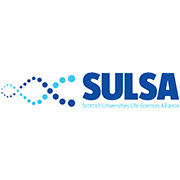
|
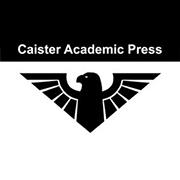
|
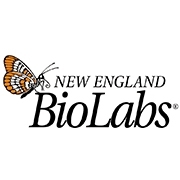
|
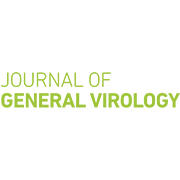
|
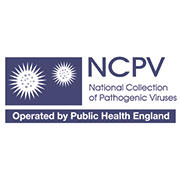
|
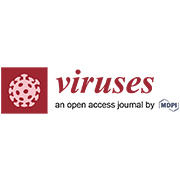
|

|
Please find below information on our exhibition and sponsorship packages, to secure your package please complete the booking form below:
Located in a prominent position alongside the catering and networking areas, your table top stand will ensure you meet face-to-face with high profile experts and develop leads and connections. Included in your package:
The programme guide book contains the schedule of talks and all the logistical information for the event and is distributed to all delegates for use throughout the meeting.
Adverts are required in the following format:
Full-page:
Half-page:
Literature can be displayed for promotion to delegates during the event.
Sponsors will be able to display A4 or A5 literature (single or double-sided) to all delegates attending the conference.
Cancellations and changes to space requirements MUST be notified in writing. Cancellations received more than a month before the conference will be entitled to a full refund less 15% handling charge. No refunds will be given for cancellations notified after this date.